
Brilliant News
Publish Time:2025-01-06
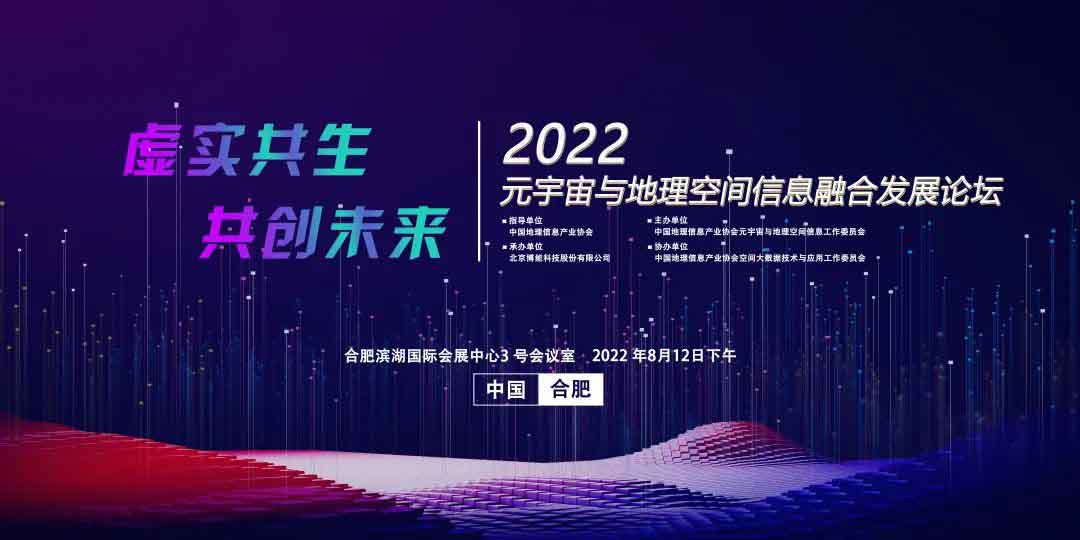
On August 12, during the 2022 China Geospatial Information Industry Conference, the "Metaverse and Geospatial Information Integration Development Forum," themed "Virtual and Real Coexistence, Creating the Future Together," was held concurrently. It was organized by the Metaverse and Geospatial Information Working Committee of the China Geospatial Information Industry Association and Beijing Brilliant Technology Co., Ltd., with the support of the Spatial Big Data Technology and Application Working Committee of the China Geospatial Information Industry Association. Experts and scholars from the fields of geospatial information, metaverse, digital twins, and artificial intelligence, as well as corporate representatives, attended the forum. Numerous industry experts, scholars, ecosystem partners, and university representatives gathered to focus on industry hotspots, integrating the metaverse with geospatial information. They shared construction ideas, technological explorations, and practical applications with professionals in related industries, providing comprehensive insights from overall strategies to specific operational experiences.
1
Guest Speech: The Metaverse Has a Broad Market Prospect
Li Weisen, President of the China Geospatial Information Industry Association, stated that the world has now fully entered the digital economy era. New technologies such as big data, artificial intelligence, and cloud computing are accelerating innovation and increasingly integrating into various fields of economic and social urban development, making China a digital economy powerhouse with obvious scale advantages and leading industrial layouts. Emerging fields such as the metaverse, artificial intelligence, blockchain, and the Internet of Things have become growth points for the digital economy. The national level and various provincial and city "14th Five-Year Plan" outlines have repeatedly mentioned related industries, promoting the development of metaverse-related industries. With the development trend of digital new infrastructure, the basic construction of big data in various industries is also accelerating. GIS, as a powerful specialized tool for information management, is becoming increasingly influential. Therefore, the natural advantages of the geographic information system GIS make it a tool for mapping the real world to the digital world, and thus it becomes the technical foundation of the metaverse. Therefore, I believe that the metaverse may become the next direction for the iteration and upgrading of the geospatial information industry.
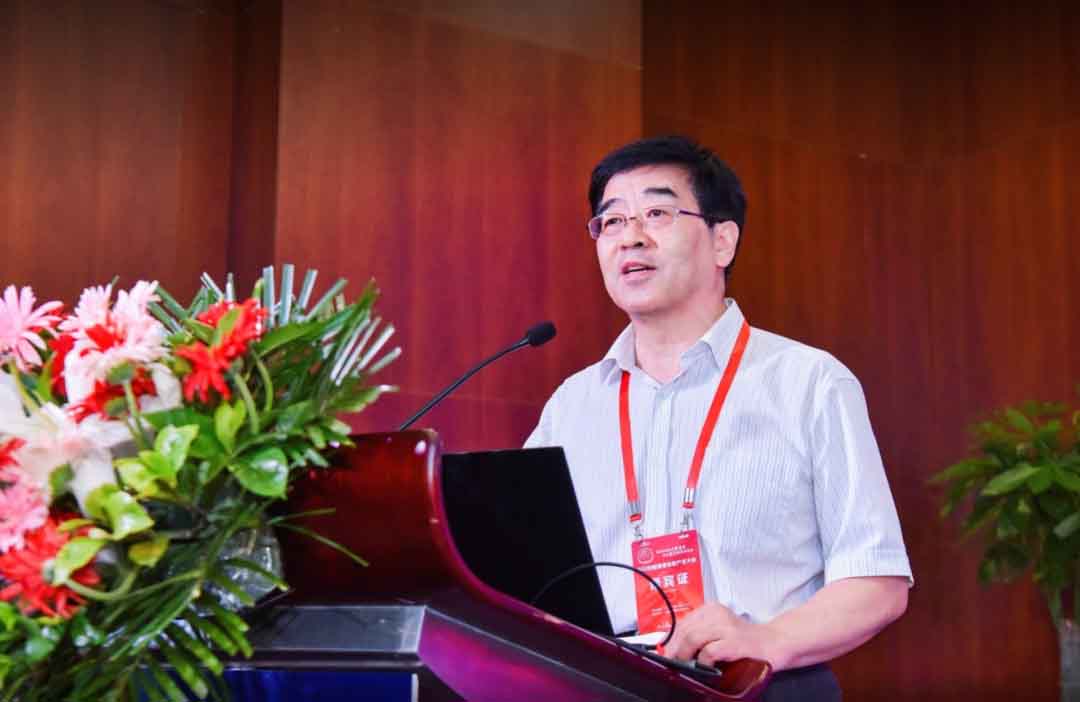
Wang Jue, Director of the Metaverse and Geospatial Information Working Committee of the China Geospatial Information Industry Association and Chairman and President of Beijing Brilliant Technology Co., Ltd., stated that this year's government work report mentioned "digitalization" multiple times. Digitalization is a revolution and an irreversible trend of the times. Accelerating digital transformation is a key move to create new momentum and innovation advantages. At the same time, in the past year, the metaverse industry has experienced explosive growth. The metaverse is the successor to mobile internet and may become a new direction for the development of the internet, as well as the next form of digital economy development. The metaverse is a combination of virtual and reality. It has also achieved significant development in the construction of smart cities, helping to promote cost reduction and efficiency enhancement in cities, improve urban vitality and inclusiveness, enhance corporate profitability, optimize resource allocation, reduce urban innovation costs, and continuously optimize the ecological environment, lower urban energy costs, and improve ecological layout.
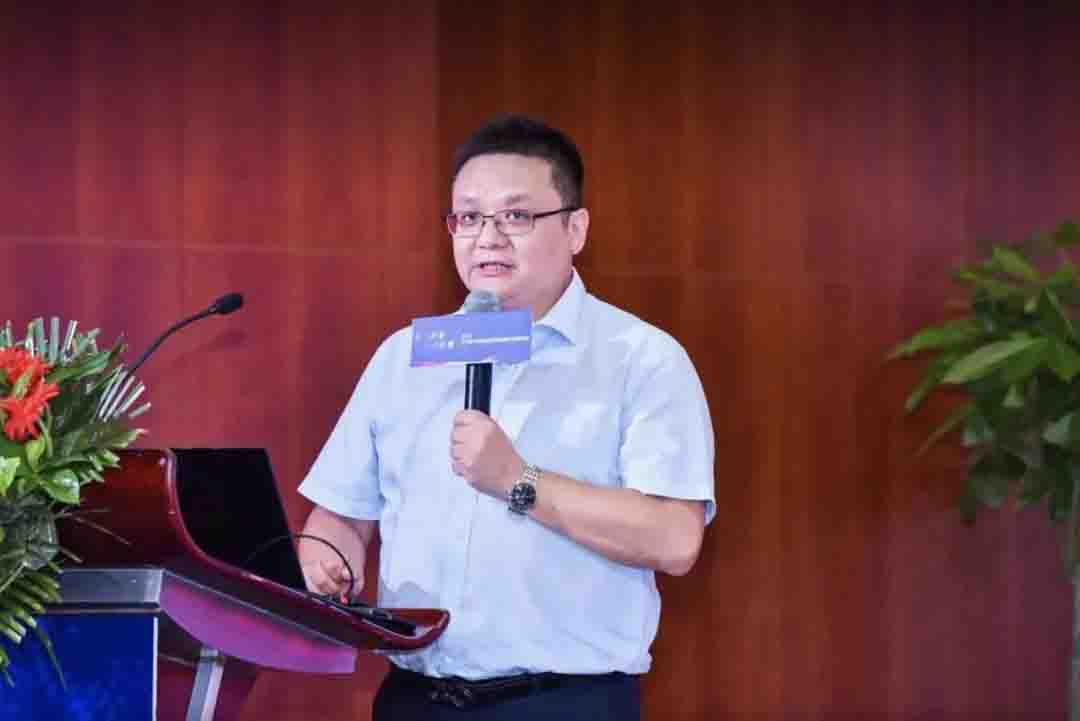
2
Expert Sharing: Research Findings and Applications Related to the Metaverse
Lu Guonian, a professor at Nanjing Normal University and leader of the national first-class discipline of geography and the key national discipline of cartography and geographic information systems, stated in his report that maps and GIS, as specialized languages of geography, are undergoing significant changes, evolving towards a language that is universally accessible to the public. The metaverse, with its openness, creativity, and social nature, is transforming people's production and lifestyles, changing the world, and also altering human communication methods. It is creating entirely new forms of media and ways of human communication. The creation of geographic scenes is the foundation of the metaverse and the second life. The design, development, and construction of virtual and real geographic scenes are the vitality of the second life in the metaverse, supporting the development of technologies such as digital twins, virtual nativity, and the fusion of virtual and real.
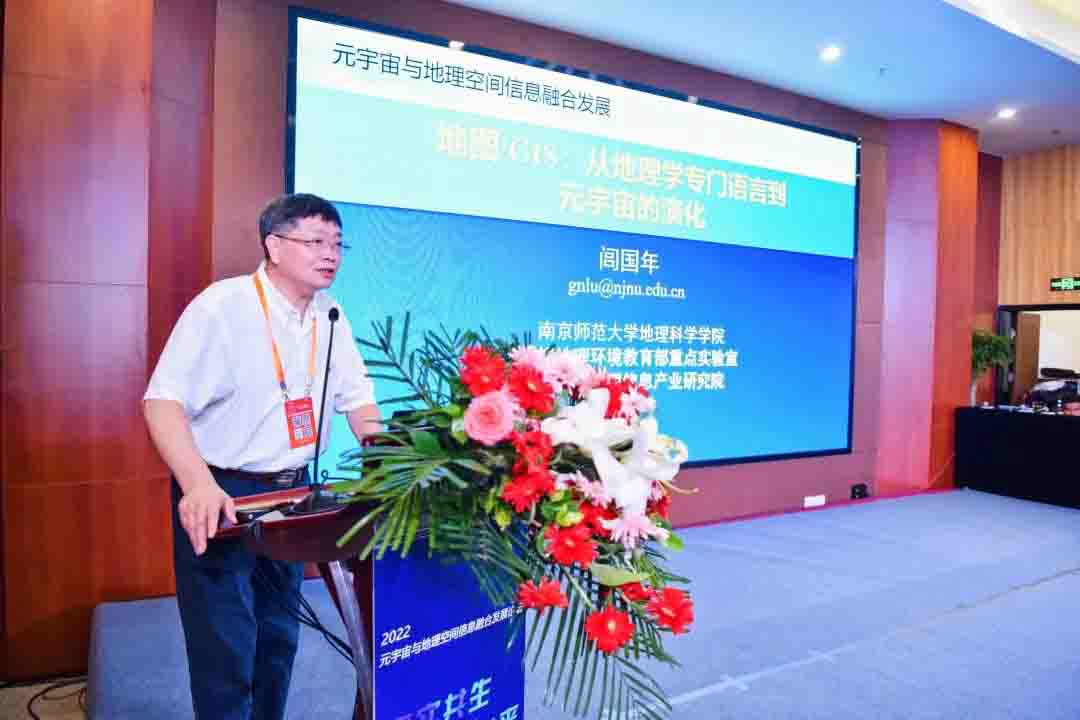
Professor Dang Anrong, a doctoral supervisor at Tsinghua University, director of the Human Settlements Information Laboratory at Tsinghua University, and director of the Key Scientific Research Base of the National Cultural Heritage Administration at Tsinghua University, believes that the metaverse and digital twins of cultural heritage involve transforming the material space of cultural heritage entities and their environments, according to certain cognitive, theoretical, technical, and logical systems, through digitalization, modeling, and knowledge-based approaches, to create information space representations of cultural heritage entities and their environments. Through the metaverse and digital twins of cultural heritage, it better assists in the digital protection and inheritance of cultural heritage, virtual research and restoration, intelligent management and utilization, further promoting the revitalization of cultural heritage, aiding the integration of culture and tourism, supporting the revival of traditional culture, fostering national cultural confidence, and boosting the strategy of a cultural powerhouse.
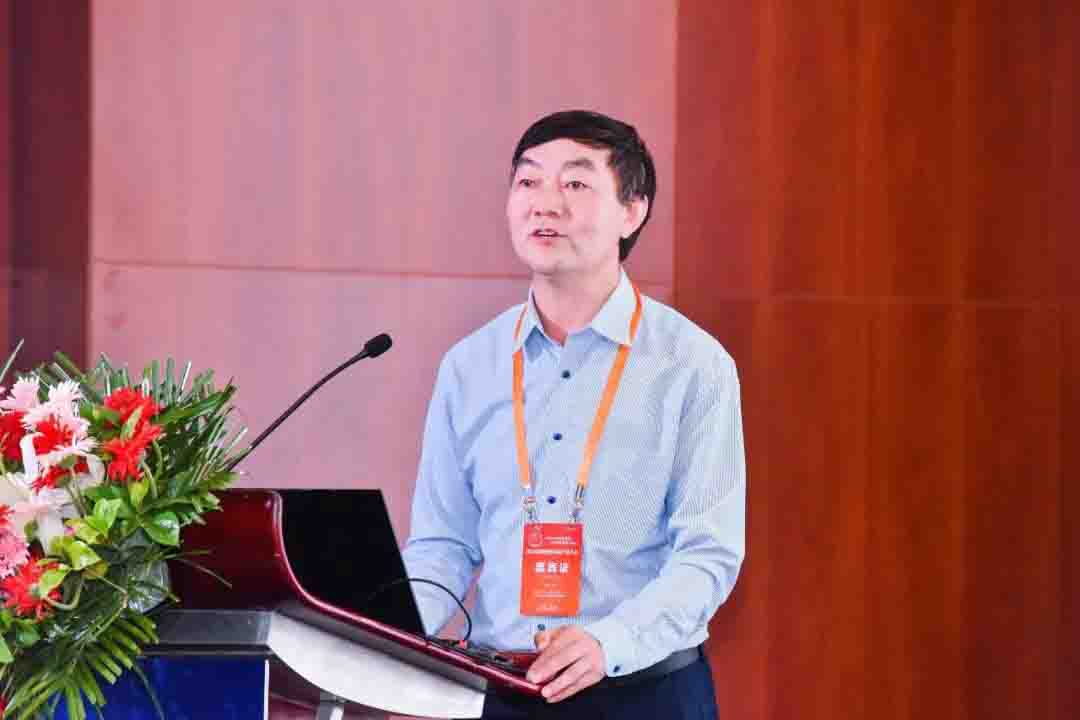
3
Win-Win Cooperation: The Launch of the "Metaverse Industry Cooperation Plan"
As the ancients said, "A single tree does not make a forest, and a single string does not make a melody." The development of an emerging technology requires the combination and practice of multiple fields. Only through in-depth communication and integration between upstream and downstream industries in the same field can a complete and perfect industrial ecosystem be created. Similarly, this is the case in the field of the metaverse. The development of the metaverse requires the empowerment of various technologies and multiple fields. Through the integration of industries with multiple modalities, fields, and technologies, the metaverse field will surely flourish. At this forum, the "Metaverse Industry Cooperation Plan" was officially launched.
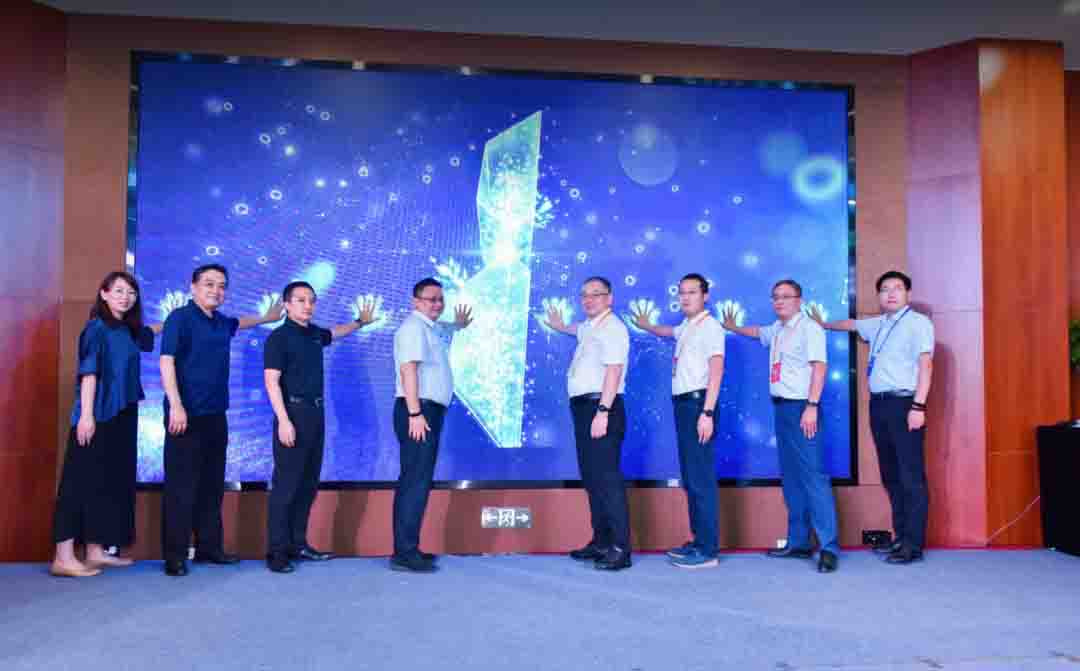
In the future, the "Metaverse Industry Cooperation Plan" will take this forum as an opportunity to gather forces from all sides, build a brand-new platform for cooperation and exchange, and establish closer cooperative relationships. This will help to obtain more advanced concepts, higher quality services, more reliable technical support, and better products in promoting the development of industries such as the metaverse, geospatial information, and digital twins. It will further promote the mutual empowerment of the metaverse and geospatial information, aiding the development of the Internet 3.0 industry.
4
Expert Sharing: Development and Practical Application of the Metaverse and Geospatial Information
Qi Huanran, Vice President of Beijing Brilliant Technology Co., Ltd. and General Manager of Chengdu Brilliant Digital Technology Co., Ltd., stated that there are significant differences between the metaverse and digital twins in terms of industry development, market maturity, and practical application. Digital twins have gone through "concept cultivation," "solution architecture," "piloting," and are now in the stage of "overall landing construction exploration." In terms of practical application, digital twin city projects that have been implemented focus on industry scenarios such as transportation, ports, energy, and cities, covering areas such as public service management, community development, and intelligent building applications. Currently, Brilliant digital twin technology has been implemented in related projects in the fields of smart civil aviation, smart ports, smart highways, and smart parks, and has created value for the business. In July 2022, the Brilliant Digital Twin Operating System BLinkOS 2022.1 was officially released. This system includes platforms for digital twin scene development, data integration and fusion processing, and digital twin visualization tools. In the future, the digital twin visualization platform developed based on the Brilliant Digital Twin Operating System BLinkOS will be applied to more sub-fields of new infrastructure industries, facilitating information interconnectivity between smart industry clusters and promoting digital upgrades in various fields under the wave of new infrastructure development.
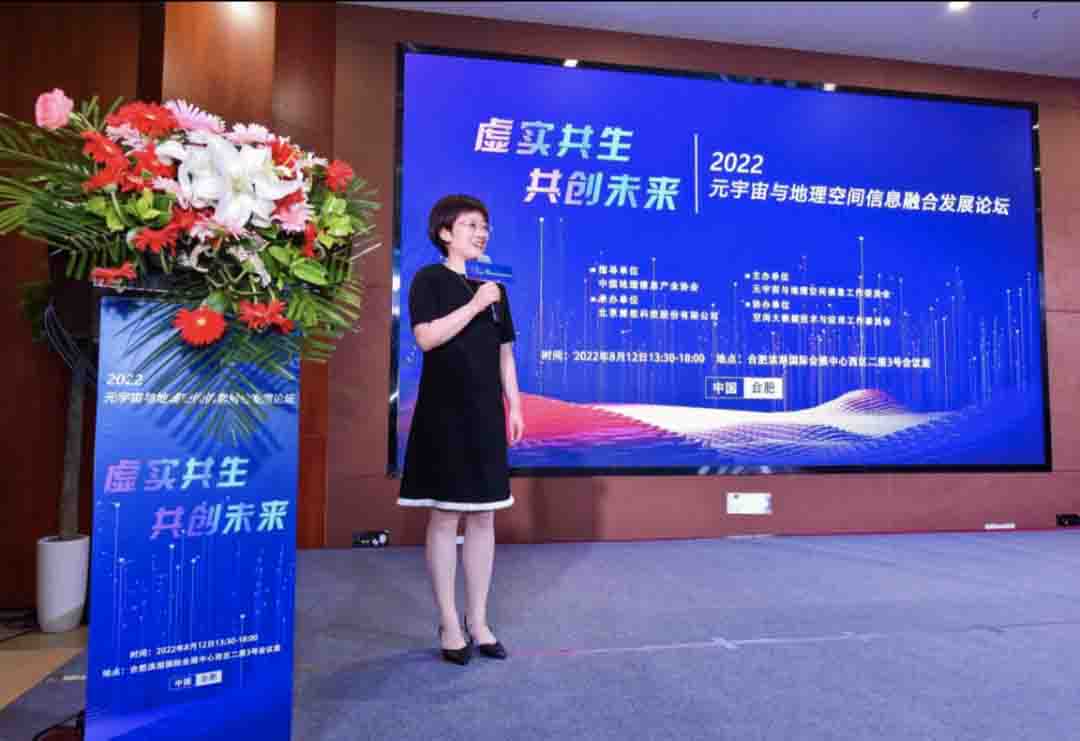
Niu Jibin, Vice President of Beijing Capital Online Technology Co., Ltd., stated that the metaverse's description of the real world and reconstruction of the virtual world require powerful computing power. Cloud computing services with low latency, high computing power, and secure storage as their core competencies, such as integrated storage and computing, cloud-network integration, and cloud-edge collaboration, are very important in building the metaverse.
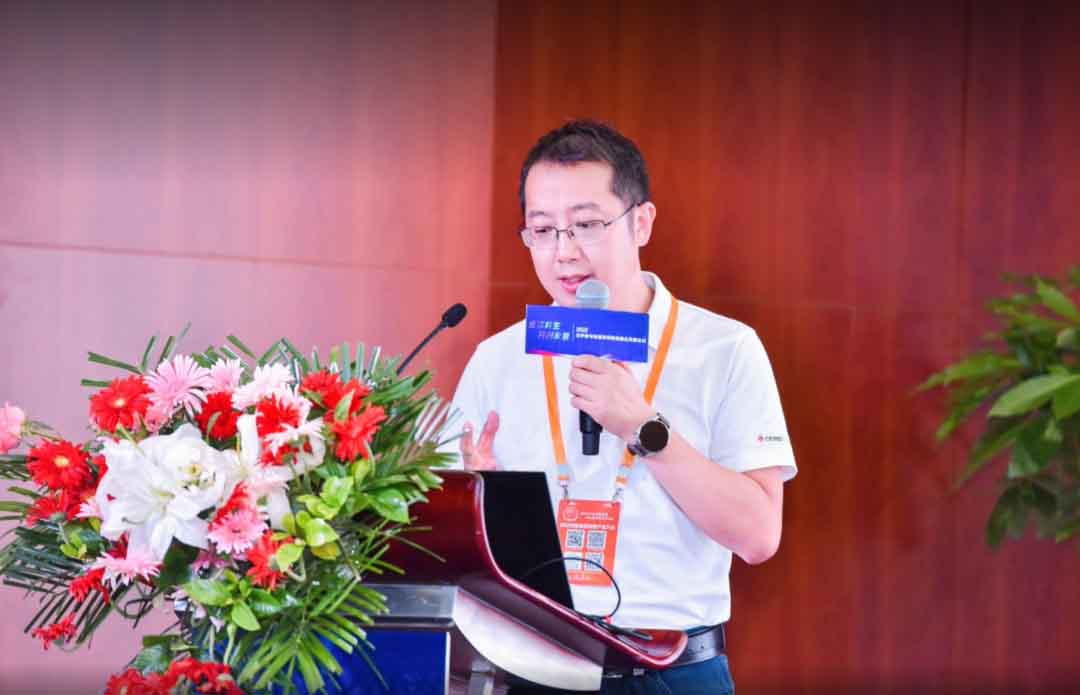
Sha Zhiyou, Senior Vice President of GeoScene Information Technology Co., Ltd., stated that the metaverse based on twin geospatial information is an important foundation for future national land space planning, smart city construction, and refined, dynamic, and intelligent management. Multi-temporal three-dimensional real scene technology, spatial big data, and geographic artificial intelligence technology are important technical supports for the metaverse.
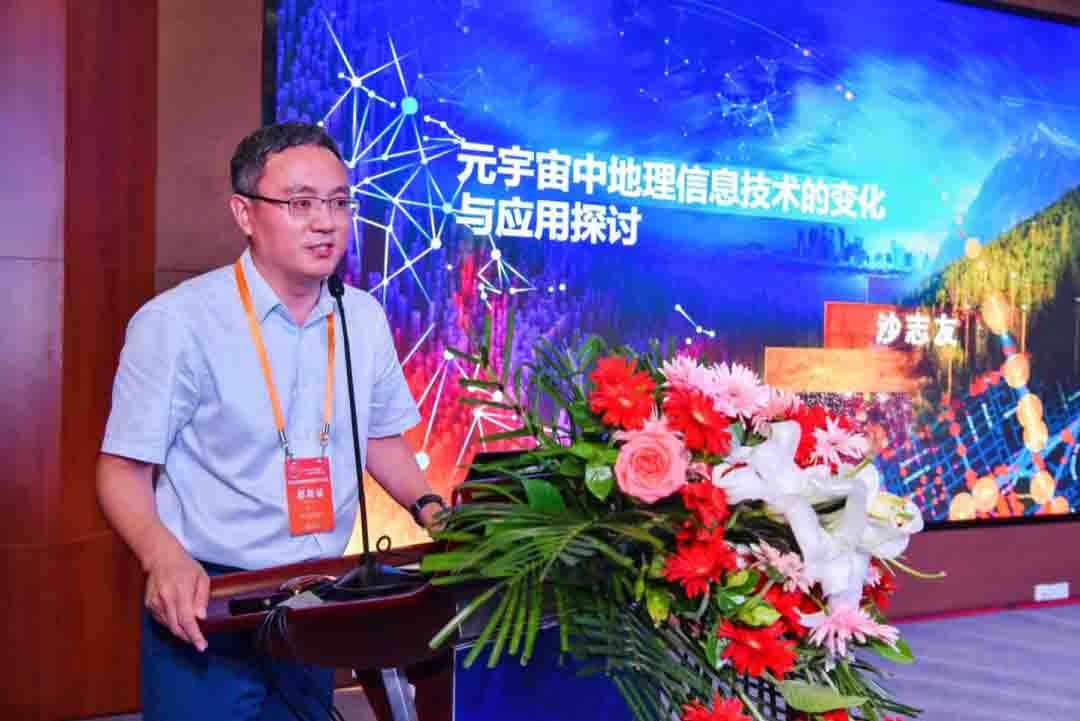
Zhou Daliang, Co-President of Zhongxing Microelectronics Technology Co., Ltd., stated that by utilizing cutting-edge technologies such as big data, the Internet of Things, mobile internet, digital twins, and artificial intelligence, a "video-BIM-GIS-AI-IoT" digital twin semantic description model is established. Based on two-dimensional and three-dimensional maps, BIM, remote sensing images, and indoor SLAM, a digital twin static base can be rapidly constructed using full-time and multi-source heterogeneous data.
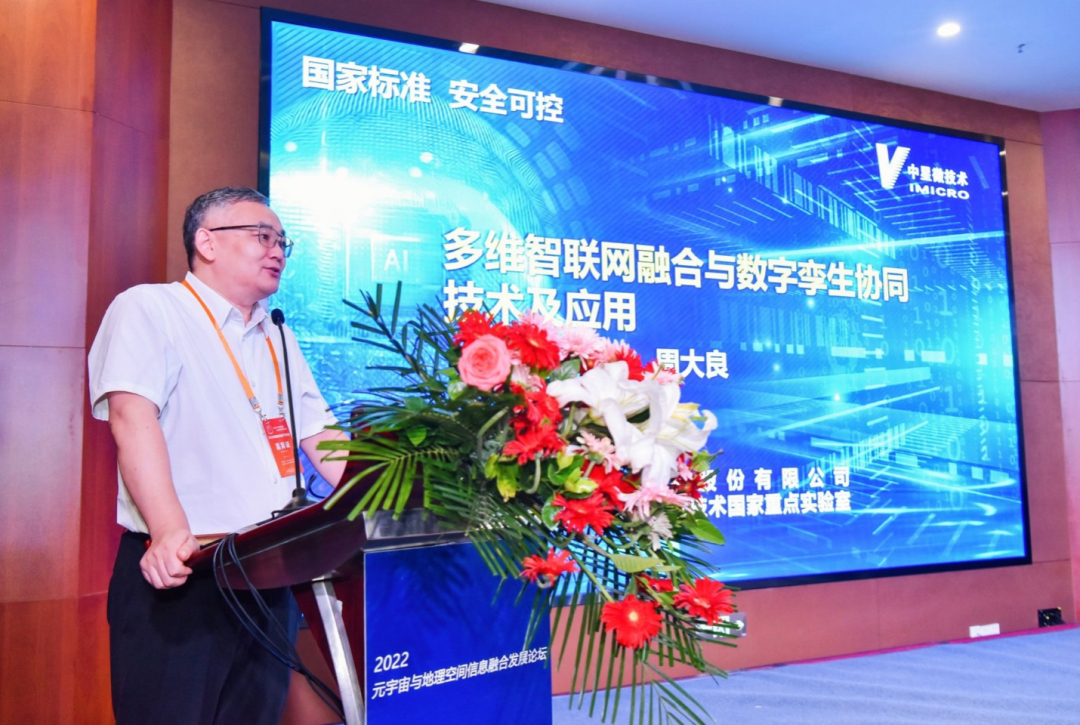
Wu Yue, a specially appointed expert at China Power Construction Information Industry Technology Development (Beijing) Co., Ltd., stated that high-performance computing centers, industrial dedicated network construction, and design simulation with digital artifacts are the infrastructure architecture of the industrial metaverse. The industrial metaverse can provide digital marketing, supply chain management, intelligent production, and product lifecycle management for the industrial sector.
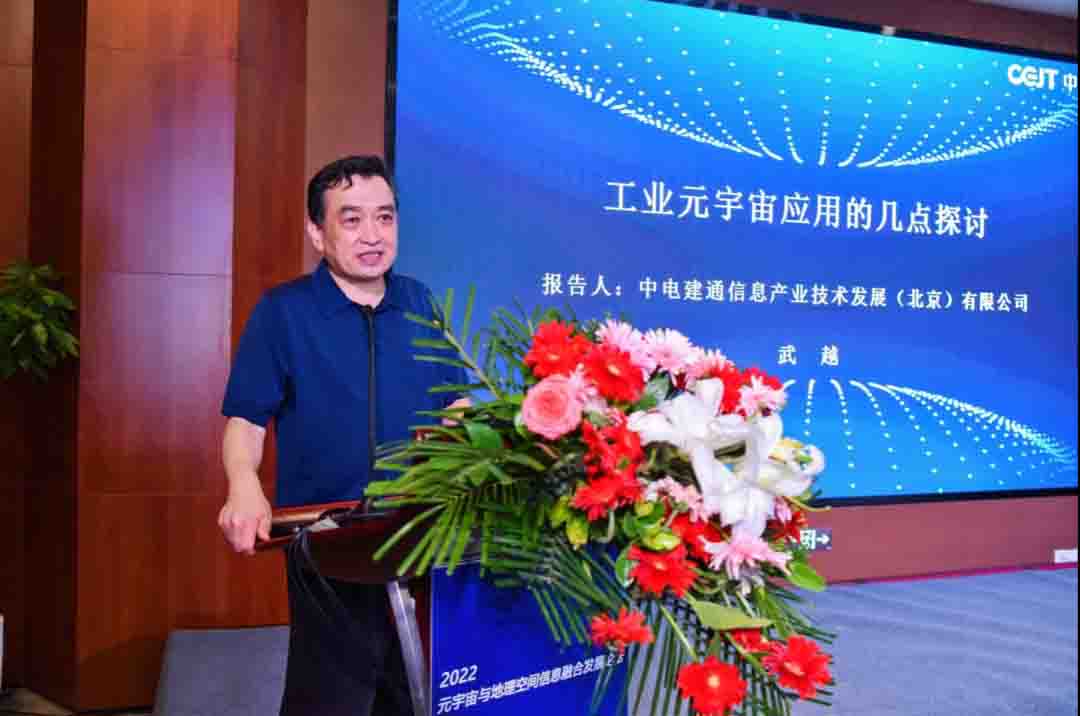
Yang Chunyu, Chief Technology Officer of Kaipuyun Information Technology Co., Ltd., stated that in the metaverse, people will interact with digital humans in digital government halls to obtain efficient government services, and this change will trigger a series of systemic transformations.
Liu Dongsheng, Senior Vice President of i-Space Information Technology Co., Ltd., stated that the metaverse is not a brand-new concept. It is a concrete expression formed by the aggregation and rebirth of multiple new technologies such as digital twins, artificial intelligence, and extended reality. The digital twin environment can be considered the "digital blueprint" in the metaverse, playing a crucial role.
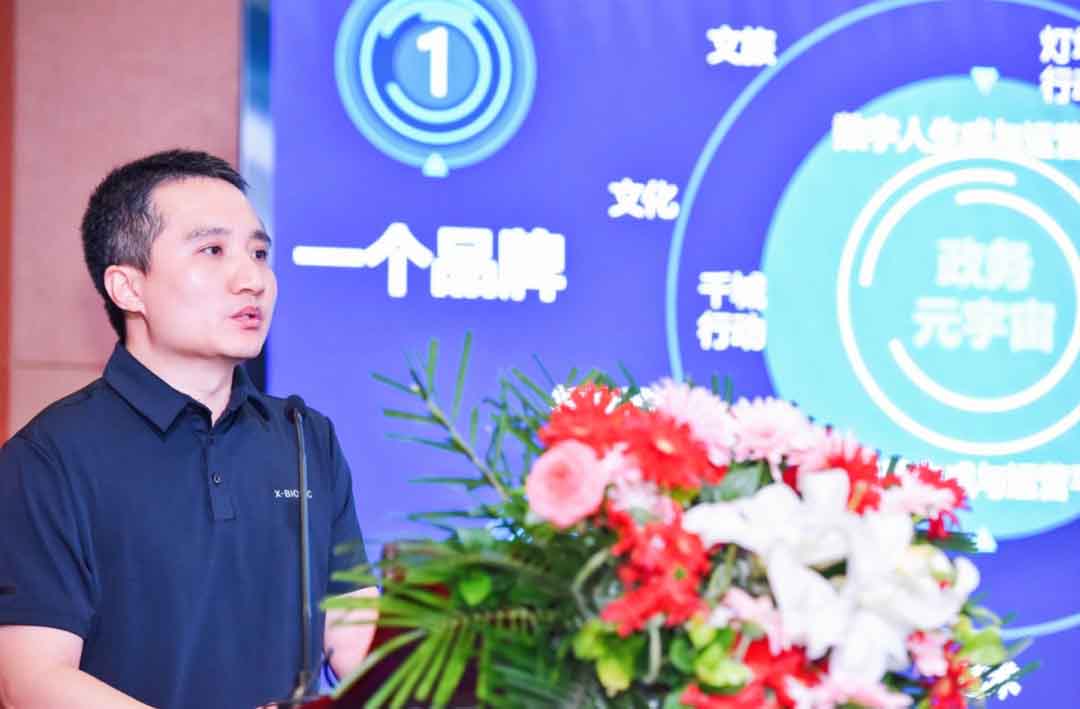
5
Intellectual Exchange: Roundtable Forum on "Exploration and Practice of Industrial Metaverse Development"
The roundtable forum was hosted by Professor Dang Anrong from the School of Architecture at Tsinghua University and Director of the Human Settlements Information Laboratory at Tsinghua University. Participants included Zhou Yuanjin, Vice President and General Manager of the Marketing Center at Beijing Brilliant Technology Co., Ltd., Wu Yue, a specially appointed expert at China Power Construction Information Industry Technology Development (Beijing) Co., Ltd., Liu Dongsheng, Senior Vice President of i-Space Information Technology Co., Ltd., and Yang Chunyu, Chief Technology Officer of Kaipuyun Information Technology Co., Ltd. The guests engaged in in-depth discussions and exchanges on topics such as the concept and practical application of the industrial metaverse, the technologies involved in the industrial metaverse and their development, and the role of digital twins in the industrial metaverse.
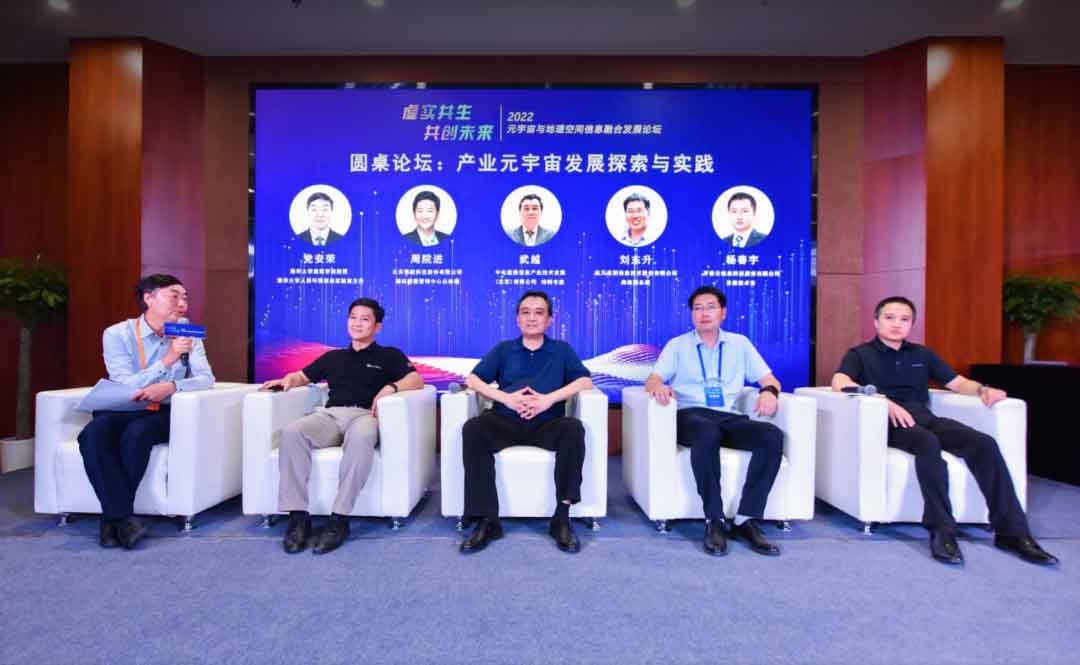
Looking back at the entire forum, experts and scholars exchanged and discussed the concept and practical application of the industrial metaverse. The audience gained a deeper understanding of technologies such as the metaverse, industrial metaverse, digital twins, and artificial intelligence, and developed a certain understanding of how the industrial metaverse can empower urban development and the construction of new infrastructure. In the future, we hope to work together with upstream and downstream partners in the metaverse field under the leadership of the China Geospatial Information Industry Association. By using metaverse and geospatial information technology as means, and digital twins as a tool to empower the construction of new infrastructure, we aim to focus on the integrated development of metaverse and geospatial information technology to promote new developments in the geospatial information industry and the upgrading of new infrastructure industries.